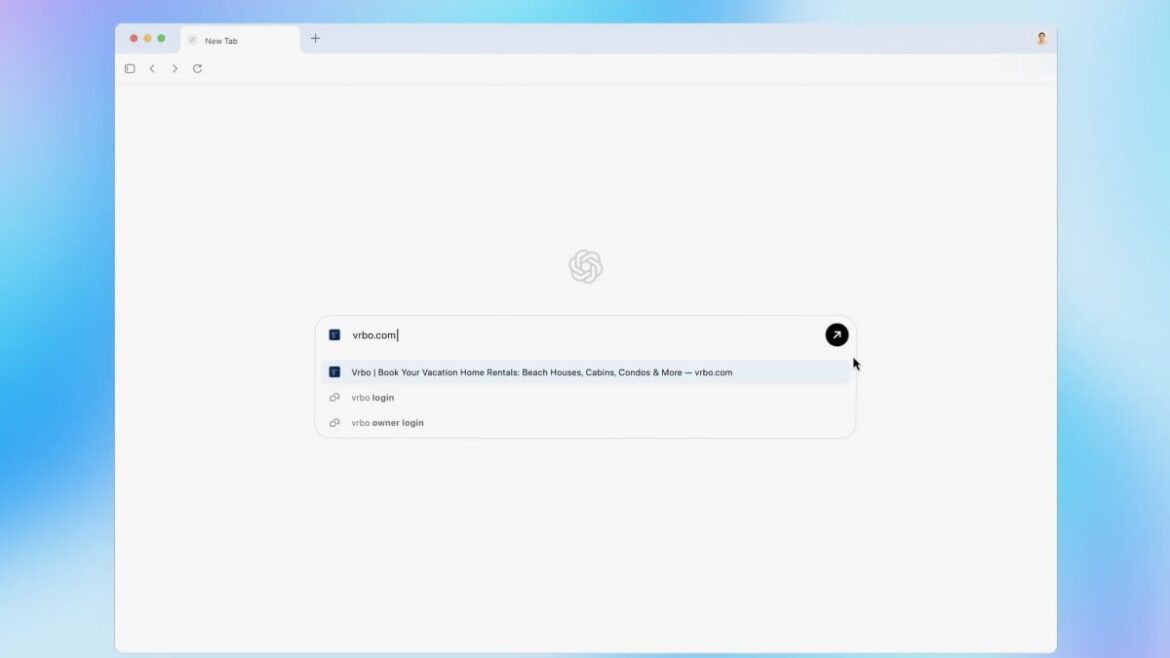Today, OpenAI introduced ChatGPT Atlas, an AI browser with ChatGPT built in. It’s now available globally on macOS for free, Plus, Pro, and Go ChatGPT users.
According to OpenAI’s announcement, the browser is a step towards the company building a “true super-assistant.” ChatGPT has long been rumored to be working on an AI browser, as Mashable reported back in July.
“With Atlas, ChatGPT can come with you anywhere across the web — helping you in the window right where you are, understanding what you’re trying to do, and completing tasks for you, all without copying and pasting or leaving the page,” the blog post states.
OpenAI also shared a video previewing ChatGPT Atlas features on X and its website.
This Tweet is currently unavailable. It might be loading or has been removed.
Atlas opens with a search bar where users can enter questions or URLs, while an “Ask ChatGPT” button can be clicked to open a sidebar on an existing tab. When writing emails or other documents, users can also use their cursor to highlight text, and ChatGPT will suggest edits.
Mashable Light Speed
ChatGPT memory is baked into Atlas, so users will be able to ask about what they looked up or worked on previously. Browser memories are apparently private to your account, and users can decide which sites ChatGPT can see. Both specific pages and the entire history can be cleared by users. You can also use Atlas Incognito, which signs you out of ChatGPT.

Credit: Screenshot courtesy of OpenAI
The recently introduced ChatGPT parental controls work in Atlas, and there are new parental control options, like parents turning off browser memories and agent mode.
OpenAI also claims in its blog that agent mode, which can navigate the web and perform tasks, is improved in Atlas. As an example, the preview video shows ChatGPT Atlast assisting users with making purchases on InstantCart. Agent mode in Atlas is available to ChatGPT Plus, Pro, and Business users.
As part of new safety guards related to ChatGPT agent, it can’t run code in the browser, download files, or install extensions. It can’t access other apps on your computer, nor the file system, and it’ll “pause to ensure you’re watching it take actions on specific sensitive sites such as financial institutions.” You can use the agent while you’re logged out if you want to limit access to sensitive data.
The AI browser war is underway. Compare the top browsers from Perplexity, Opera, and more.
“ChatGPT’s agent capabilities still carry risk,” the blog post warns.
Atlas is available in beta for Business users, as well as for Enterprise and Edu users if enabled by the plan’s administrator. Versions for Windows, iOS, and Android are coming soon.
How to try ChatGPT Atlas
- Mac desktop
- ChatGPT account
Step 1:
Download ChatGPT Atlas
You can download ChatGPT Atlas at the OpenAI website. It’s only available for Mac desktop users for now.
Step 2:
Sign into ChatGPT in Atlas
While you can use Atlas in incognito mode while signed out, when first setting up the browser, you need to log in to your ChatGPT account.
Step 3:
Import data from another browser
You can bring over your bookmarks, history, and passwords over from another browser like Google Chrome or Safari.
Step 4:
Allow Keychain Access
Keychain on Mac keeps track of sensitive data like passwords and encryption keys.
Step 5:
Decide whether you want to enable memories
If enabled, Atlas will be able to recall what you searched and worked on previously.
Disclosure: Ziff Davis, Mashable’s parent company, in April filed a lawsuit against OpenAI, alleging it infringed Ziff Davis copyrights in training and operating its AI systems.

